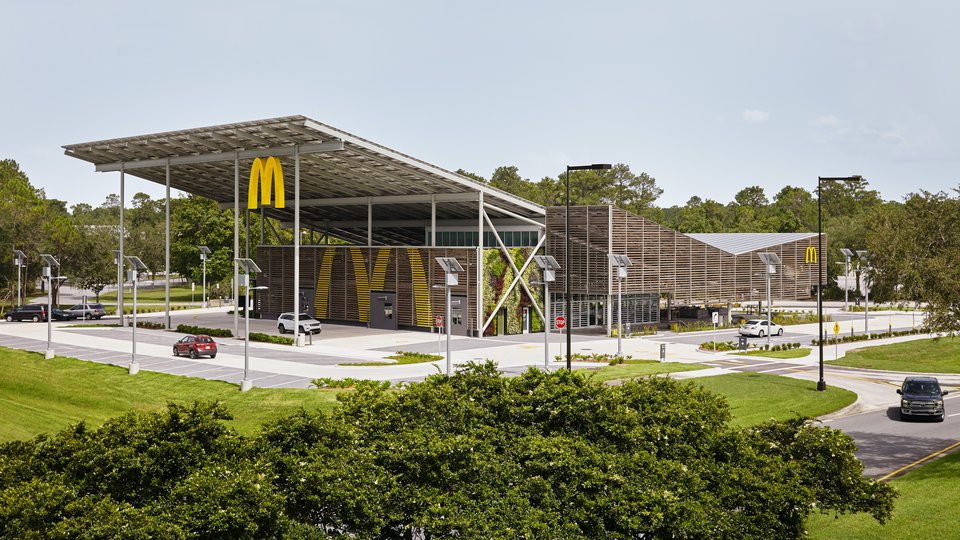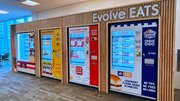Technology
McDonald's solar-powered Disney World store a lab for future

July 10, 2020
McDonald's opened a first-of-its-kind restaurant on Disney World property in Florida that will actually create enough renewable energy on-site to cover all of its energy needs on a net annual basis. The global flagship restaurant will serve as a learning hub for McDonald's to test solutions for reducing energy and water use, a news release said.
The newly remodeled Buena Vista Drive building is near the currently closed All-Star Resorts, which remains open for drive-thru and delivery during the soft launch period. McDonald's said the store will open for dine-in and carryout at a later date.
"These unprecedented times have only heightened the importance of innovation that fosters long-term security and sustainability," Marion Gross, McDonald's chief supply chain officer, North America said in the release. "While health and safety in our restaurants is our top priority, we must also remain focused on creating positive change for our communities and the planet. This restaurant marks an important step in McDonald's journey to reduce our carbon footprint and identify meaningful solutions in the fight against climate change."
Designed by Chicago-based Ross Barney Architects with Architect/Engineer of record CPH, in Florida, the 8,024-square-foot restaurant features:
- A solar-paneled roof, with photovoltaic glass panels throughout the building and exterior solar parking lot lights.
- An automated energy system with passive ventilation dining-room for air circulation and temperature regulation.
- Interactive educational elements on sustainable design, including electricity-generating stationary bikes that illuminate the arches, to renewable energy tablet games.
Restaurant data will help inform the brand's global sustainability efforts, including its target to reduce restaurant and office greenhouse gas emissions by 36 by 2030, compared to a 2015 base year.
"Through addressing their own carbon footprint, McDonald's has shown leadership in helping tackle the climate challenges our planet is currently facing," Marty Spitzer, World Wildlife Fund senior director, Climate and Renewable Energy, said in the release. "The design of this global flagship restaurant is another positive step in how McDonald's is bringing proven renewable energy solutions under one roof, and most importantly, educating customers about the importance of sustainable practices and renewable energy sources."
Last year, McDonald's invested in two virtual power purchase agreements (VPPAs) to expand the renewable energy available nationally. Once online, the energy generated by these projects will be equivalent to over 2,500 restaurants-worth of electricity.
McDonald's investment will help prevent approximately 700,000 metric tons of CO2 emissions each year. That's the same as planting 11 million trees or taking more than 140,000 cars off the road, the brand said.
 ChatGPT
ChatGPT Grok
Grok Perplexity
Perplexity Claude
Claude








